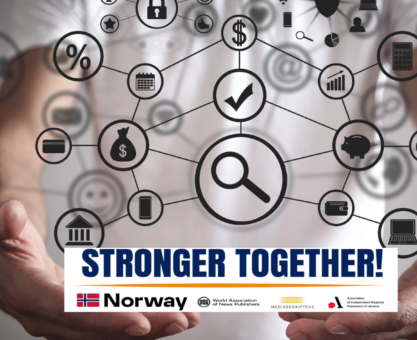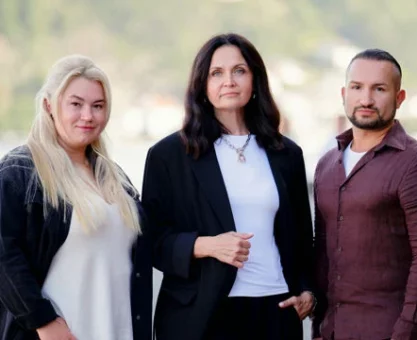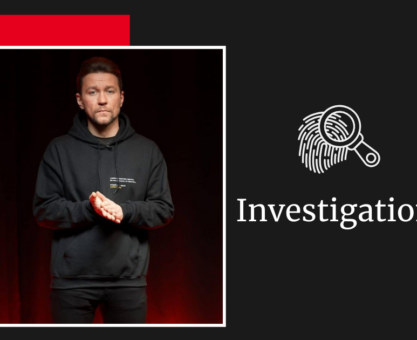As part of the «Stronger Together: Transparency and Anti-Corruption» program, we’re launching a series of stories about mentors and their teams — regional media outlets that are developing investigative journalism.
We want to introduce you to the project participants, share their experiences, achievements, and needs. Some bring years of work and high-profile investigations. Others are just beginning this path. But together, we are building a community ready to grow, adapt, ask tough questions, and seek the truth — especially where it’s being hidden. Because in times of war, the voice of truth matters more than ever.
Alisa Yurchenko, investigative journalist at The Kyiv Independent
Over 10 years of experience in investigative reporting.
«High-quality investigative journalism is crucial — both in the regions and in the capital. It helps local communities, holds authorities accountable, and is a vital part of restoring justice. National media simply can’t cover the full scope of local developments.
That’s why a project like this is incredibly relevant — especially now, when so much support has disappeared. It’s a lifeline for many investigative teams.
I hope we’ll work with our teams to uncover and tell local stories that resonate not only in their regions, but across the country».
Mentor’s Team
Crimean «Center for Investigative Journalism»: нears of experience and results that matter
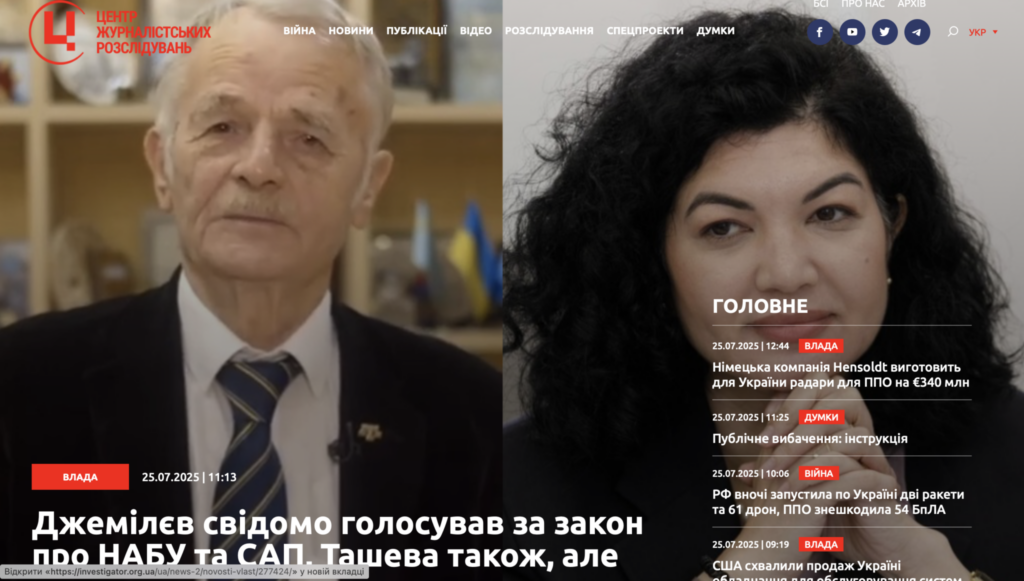
The Crimean «Center for Investigative Journalism» has demonstrated exceptional effectiveness in investigating Russian war crimes in occupied territories and identifying collaborators. Their findings have led to hundreds of criminal cases, the inclusion of dozens of individuals and legal entities in sanctions lists of Ukraine, the U.S., the EU, and the UK, and have influenced Ukraine’s policy on sanctions and occupied territories. CIJ journalists also serve as trainers in war crime investigations, sanctions evasion schemes, and OSINT techniques — regularly invited as experts by other media and think tanks.
Given their extensive experience in investigative journalism, it’s particularly valuable to have a team like this in the «Stronger Together» project.
«First and foremost, we urgently needed funding to continue our investigations after the USAID-funded Media Program in Ukraine was discontinued. This was especially critical for us, as 90% of our team are internally displaced persons from the occupied south and Crimea.
Secondly, “Stronger Together” is directly relevant to our mission, as it supports regional media and the creation of investigative content for local audiences — in our case, both in free and occupied areas of the south and Crimea.
Finally, the project offers team members from temporarily occupied territories a chance to grow — through training sessions and work with mentors», — says Valentyna Samar, editor-in-chief.
Over 17 years of work, «Center for Investigative Journalism» has produced many impactful stories that have resonated with society.
«I’d like to recall our 2009 investigation series “The Price of Power” about political party funding and presidential campaigns. It won the national anti-corruption award “Dignity of Ukraine” (a predecessor to “Honor of the Profession”). At that time, there were no public declarations or legal requirements for parties to disclose campaign donors — yet we pushed for disclosure during the elections.
We were a barely year-old regional outlet then — it seemed like a bold, almost reckless move. But we succeeded. I can confidently say CIJ was among the first in the country to start investigating war crimes after 2014, using OSINT methods.
We reported on the occupation of Crimea and Sevastopol, revealing the role of illegal armed groups controlled by the Russian Black Sea Fleet — formations made up of collaborators, ex-military, and Cossacks. In our “Putin’s Stormtroopers” series, we exposed the structure and members of the ‘Self-Defense of Crimea’ and “Self-Defense of Sevastopol”.
Our findings triggered hundreds of criminal proceedings, numerous court verdicts, and ongoing charges by the Crimean Prosecutor’s Office. We developed techniques we now use to continue unmasking Russian military groups and weapons manufacturers — many of whom are now under sanctions by Ukraine, the U.S., the EU, and others», — Samar emphasizes.
The team’s biggest challenges are those they can’t control — and not just funding, although it remains crucial for stable operations. The main obstacle is the unlawful refusal of public officials to provide access to information and documents, often citing «national security», says Samar. This issue is particularly acute at the regional level. As a result, the team must involve lawyers and spend their most valuable resource — time.
«Over the past three years, our journalists have focused on investigating war crimes, identifying Russian soldiers and collaborators for prosecution and sanctions, and reporting broadly on life under occupation. This work supports law enforcement and Ukraine’s defense forces.
But now it’s time to return to anti-corruption investigations — especially in light of recent attempts by the authorities and their allies to undermine the independence of NABU and SAPO. This threatens Ukraine’s EU accession and international aid», — she adds.
A series of trainings during the boot camp in Lviv has already helped CIJ update and deepen its knowledge and skills in anti-corruption reporting. Now the real work begins — and with it, the hope for many more successful cases that will shape real change in the country.
«Odessa Life»: the beginning of a long journey
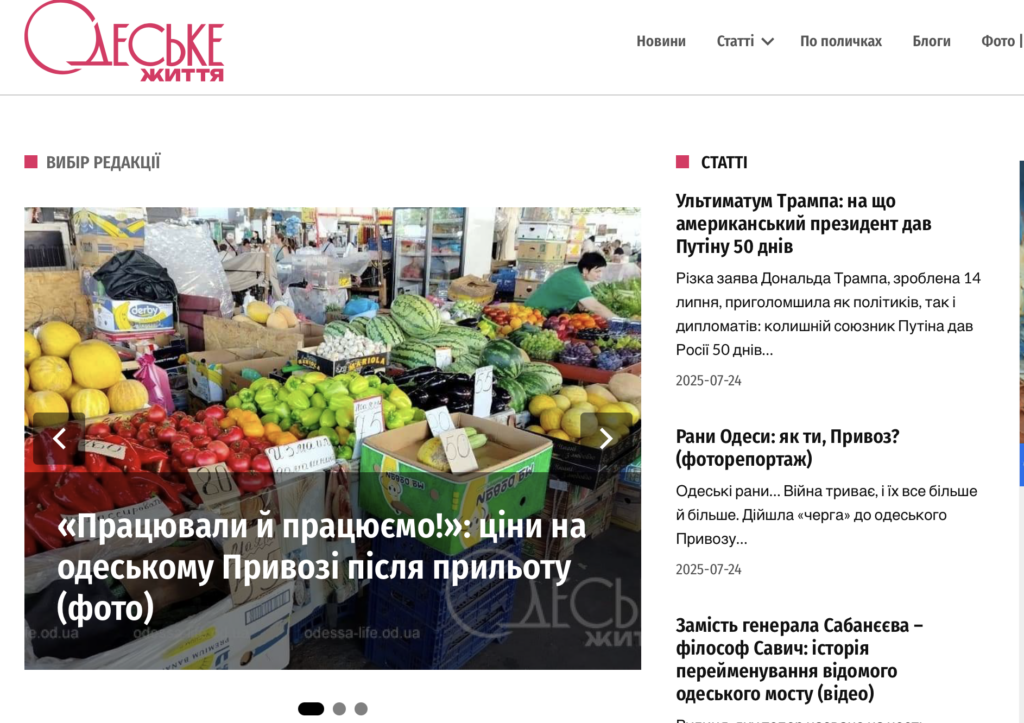
The media outlet «Odessa Life» has been active since 2007. For many years, its journalists followed professional standards and chose stories that resonated with their audience. They published impactful investigations. The publication’s mission is to explain complex processes in simple language.
«However, due to COVID-19 and later the full-scale invasion with all its challenges, we had to shift our focus. The newsroom staff also changed — the journalists who previously worked on investigations are no longer part of the team. So while the publication has prior experience in this field, for our current team, investigative journalism is essentially a new direction», — notes Yuliia Kotliar, deputy editor-in-chief.
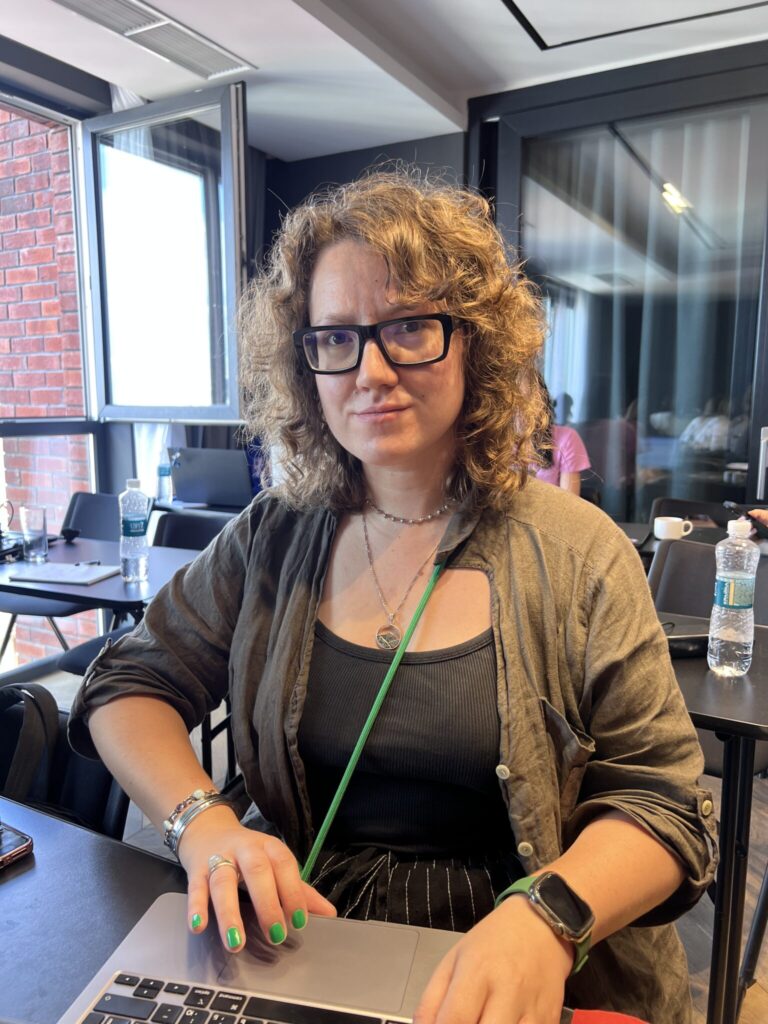
What motivated them to apply for the «Stronger Together» project? According to Yuliia, it was primarily the audience’s demand. In the early stages of the full-scale war, readers were focused on survival and real-time information. But now, society is seeking something else — deeper content, serious analysis, and high-quality investigations. Ukrainians want justice. They want to see results. They want to know where the money goes — money that could have supported the Armed Forces.
Like many regional outlets, one of the main obstacles to developing investigative journalism has been a lack of human resources.
«Our new team is just starting out. We’re building our investigative work from the ground up because our journalists don’t yet have experience in this area. Other challenges include funding and the ability to pay staff for their work. We need institutional support because investigative work involves more than just a reporter — it’s a team effort.
Many investigations also require paid technical tools, access to databases, and platforms. We hope that with partner support and proper training, we can gradually master these tools and grow this area of our work», — she explains.
After the Investigative Bootcamp, held in Lviv on July 8–11 by AIRPPU, the newsroom began developing a system for monitoring and analyzing tenders and asset declarations. Several stories are already in progress. According to Yuliia, they are most interested in cases of irrational spending — especially when those funds could have supported the military.
«Thanks to the project, we’ve already been introduced to many useful tools, platforms, and research methods. We’re actively learning. We’ve had the opportunity to learn from leading Ukrainian investigative journalists who generously share their experiences, typical pitfalls, and hidden risks that arise in every investigation.
Of course, we’d love to live in a region with no need for anti-corruption investigations. But as long as such cases exist — we hope to have the time, motivation, and funding to expose them», — says Yuliia Kotliar.
«Eastern Variant»: aiming to be louder and go beyond the region
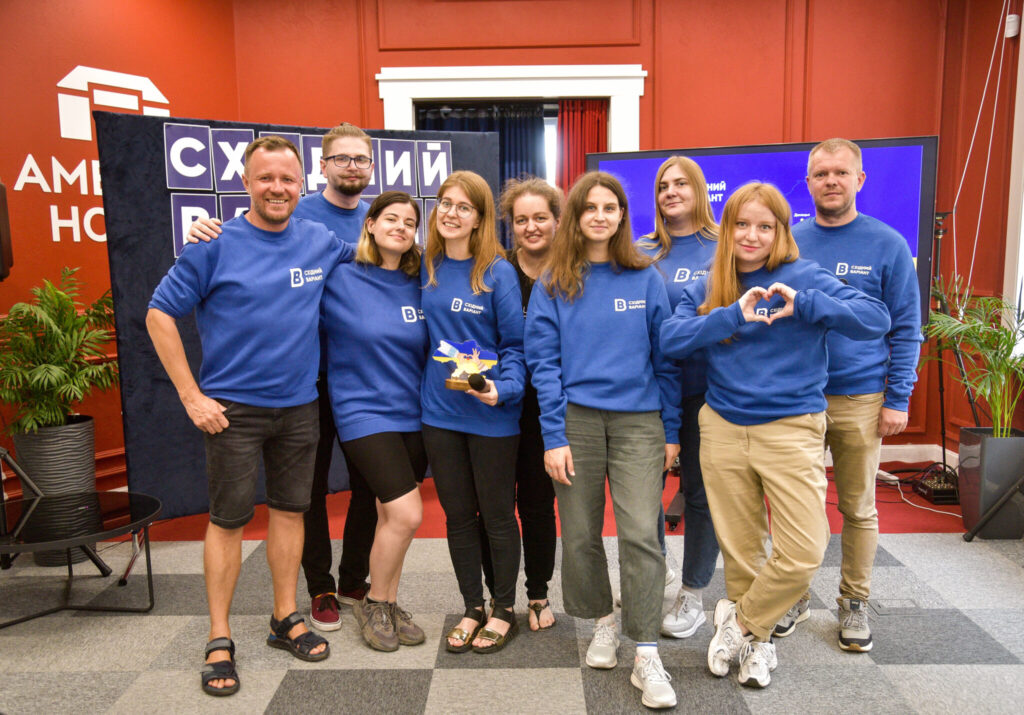
«Eastern Variant» is not a dedicated investigative outlet, but since its relaunch in 2020, elements of investigative content and analysis have been present in its editorial work. According to editor-in-chief Anastasiia Rudenko, that’s when they launched their permanent section «Control», which systematically examines how authorities function and how public funds are spent. Starting in 2024, the newsroom began working more deliberately on investigative topics. Key focuses include the situation in occupied territories of eastern Ukraine, reconstruction in frontline regions, construction contracts, housing for internally displaced persons, and the use of related budgets in local communities.
«The “Stronger Together” project perfectly aligns with our editorial strategy. We already have the demand and internal motivation to grow our investigative capacity.
A major reason for our participation is also the broader media market situation: the sharp decline in donor funding — particularly from American partners — hit us hard. But we want to keep our team intact and not lose what we’ve built. This project is a chance to move forward even when resources are limited, but ideas and motivation are abundant», — says Rudenko.
One of the most challenging — yet crucial — investigations for the team was the series «Stolen Enterprises», which explored what happened to coal mines in the occupied Luhansk region: Dovzhanska-Kapitalna, Bilorichenska, Chervonyi Partizan. Accessing information from occupied territories is always a challenge, but their reporting revealed how equipment was being removed, ownership structures changed, and entire industries destroyed.
«Another case that had real impact: we published a story about the potential closure of a school in the frontline village of Piddubne in Donetsk region.
In June 2024, the teaching staff contacted us, reporting plans to reorganize or shut down their school without cause. We looked into the situation and found the closure was indeed unjustified — the school met all educational standards. Our story helped extend the school’s operation for at least another year», — shares Rudenko.
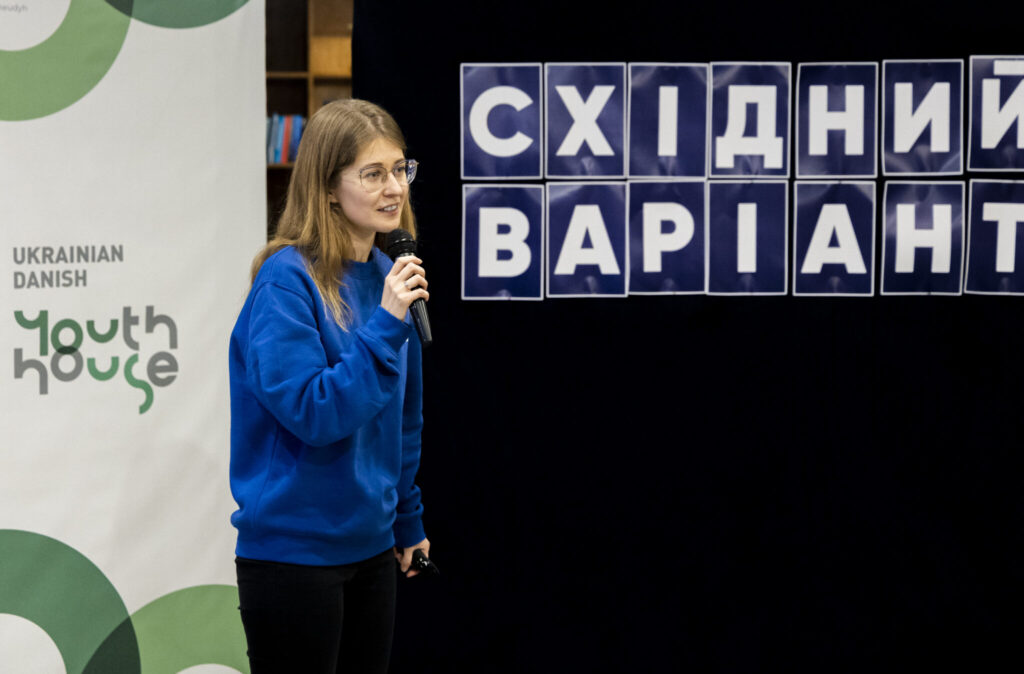
These kinds of stories show how journalism can spark positive change and prevent violations.
Despite the team’s determination and purpose, the biggest challenge for regional media remains funding.
«Some of our team members want to focus on investigations, but it’s tough to pull them away from other responsibilities — news, distribution, other editorial work.
We constantly operate with limited capacity. That means we lack both financial resources and experienced investigative staff. It also comes down to mastering investigative tools and ensuring safety. But “Stronger Together” is designed to help address these gaps. For us, it’s a chance to resolve at least some of these challenges», — she adds.
«Eastern Variant» is a relocated newsroom — some team members lost their homes twice: first fleeing Donetsk to Mariupol in 2014, then again in 2022. Most are IDPs who understand the challenges of displacement firsthand. What they need most now is stability — to retain their professional team, continue working, and grow. Their goal is to deepen their investigative skills and produce meaningful, impactful journalism.
«We want our stories not only to go deep — but also to resonate. To change situations, spark discussion, and compel action from authorities.
We aim to build a structured process — with planning, fact-checking, source verification, and a strong focus on safety», — says Rudenko.Mentorship is key — especially on difficult topics. Support in structuring the workflow, learning tools, and gaining experience will help the team avoid common mistakes and accelerate progress. One of their hopes is also to boost distribution — so their work can reach beyond the region, where it’s often overlooked. At «Eastern Variant», they want their investigations to sound louder and matter on a national scale — and believe that «Stronger Together» can help make that happen.
Stay tuned — we’ll soon introduce other project mentors and their teams.
***
The program Stronger Together: Media and Democracy is implemented by the World Association of News Publishers (WAN-IFRA) in partnership with the Association «Independent Regional Press Publishers of Ukraine» (AIRPPU) and the Norwegian Media Businesses’ Association (MBL) — with the support of Norway.


